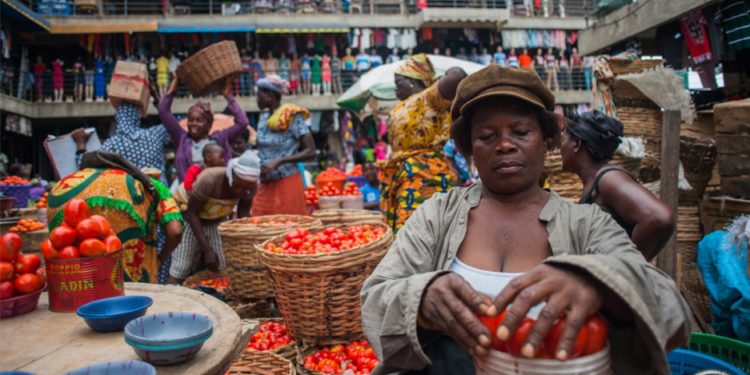Ghana’s inflation rate jumped more than expected in November, fueled by a slump in the cedi, raising pressure on the central bank to continue increasing borrowing costs next month.
Annual price growth quickened to 50.3% in the world’s second-largest cocoa producer from 40.4% a month prior, Government Statistician Samuel Kobina Annim told reporters Wednesday in the capital, Accra. That’s the seventh-highest inflation rate in the world among 120 nations, including the eurozone.
The inflation rate has now surpassed the 10% ceiling of the central bank’s target range since September last year. The median estimate of six economists polled by Bloomberg was for price growth to quicken to 42.7%. Imported inflation was 55.1%, and transport prices rose 63.1%.
The shocking number may push the central bank to increase interest rates next month for the seventh time since November 2021 and “demonstrates the enormity of the stabilization challenge” the nation faces after clinching a staff-level agreement with the International Monetary Fund for a $3 billion bailout, Razia Khan, head of research for Africa and the Middle East at Standard Chartered Bank said.
The monetary authority has cumulatively raised the key rate by 13.5 percentage points since November last year to steady the cedi that’s lost almost 42% of its value in 2022, making imports more costly and uncaging inflation. That’s taken the benchmark interest rate to a 19-year high of 27%.
A turnaround in the cedi in recent days and the IMF deal may ease price pressures in coming months. Ghana approached the IMF in July for an economic program after investor concerns about ballooning government debt — forecast to exceed the size of its economy this year — led to a selloff of government bonds that effectively locked the country out of global capital markets.
The central bank of Ghana forecasts inflation to peak in the first quarter of 2023 and settles around 25% by the end of that year. Food-price growth surged to 55.3% from 43.7% in October, and non-food inflation accelerated to 46.5% from 37.8%. Prices rose 8.6% in the month.
The cedi appreciated by 3.9% to 10.6999 per dollar at 10:49 a.m. in the capital, Accra. The nation’s dollar bond yield maturing in 2032 declined 14 basis points to 27.6%.
Read also; IMF Approves a $3 billion Credit Facility for Ghana to Stabilize the Economy.




